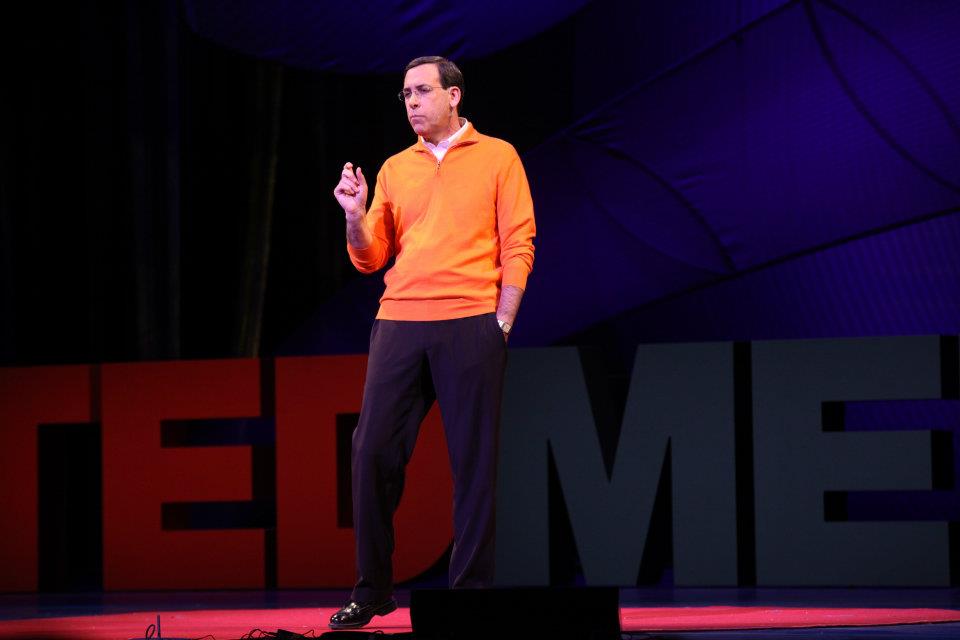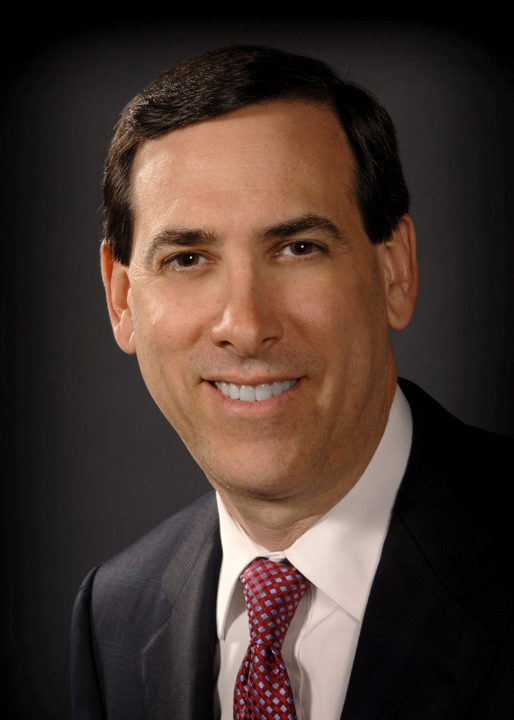The Future of Diagnostics and Digital Health: An Interview with Quest Diagnostics’ Chief Medical Officer Dr. Jon R. Cohen, M.D.

Quest Diagnostics was recently at HIMSS13 demo-ing Gazelle app, one of the very first to take advantage of Project Blue Button. Quest has been an early supporter of both Project Blue Button and Blue Button Plus, and we are fortunate to be able to share excerpts on our blog of a recent interview with Quest Diagnostics’ Senior Vice President and Chief Medical Officer Dr. Jon R. Cohen regarding Quest Diagnostics’ presence in the digital health space and healthcare consumer engagement. Check out the excerpts below and the full audio here.
Our thanks to Hema Patel from Quest Diagnostics for conducting the interview and providing a transcript.
Could you share some background on what Quest Diagnostics role in the digital health revolution is today, and what we can anticipate from Quest in the future?
Dr. Cohen: Quest Diagnostics believes that transparency for patients and physicians will help to move healthcare towards an environment where people will increasingly embrace their health, their conditions, and be more involved in their healthcare. So, as a result of that core philosophy, we have been on the forefront of pushing forward, not just the idea, but the strategy that patients should have access to their own laboratory results. There are currently upwards of approximately 35 or so states in the country where we are allowed to give patients their results, but there are a significant number of states where we actually cannot. That is because of rules originally set out by the CLIA amendment, federally. And then states in their own jurisdictions are allowed to decide whether or not patients have access to their results. In many states physicians have to order the lab, then we can give results to patients,– the patient has no direct access. So having said that and believing in transparency, what we have been doing is trying to provide patients direct access to their laboratory results. A part of that was the development of a mobile platform, the name of which is Gazelle, where patients can actually sign up in the states they are allowed and get direct access to their laboratory results. There are some qualifiers — we do give the results to the ordering physician first, and we wait 48 hours before we release them to the patient so the physician still has more than adequate time to inform the patient of the result and have the discussion. We do not release cancer results, HIV screening results and genetic information because we believe strongly at least those three areas, that kind of information is still best coming from your physician. So Gazelle is our mobile platform for both delivering results and for a personal health record.
The second part of embracing patients and people embracing their own health, is to provide patients with what we call their own personal health record so that they can also carry with them all their necessary information — upwards of 90% of the information that they would need at most initial physician encounters or in the emergency room.
The personal health record is different from an electronic medical record, which is a full blown accounting of all of your medical information. So for instance the personal health record that makes up Gazelle has information about your medications, allergies, and your physician contact information, issues related to prior immunizations …It has some categories of prior history of certain diseases you may have. But it is really that information that you would fill out in a clipboard when you see a physician or arrive in an emergency room the first time and, in addition, of course in addition it has your laboratory data.
The difference with Gazelle is that we automatically, if you sign up, download your laboratory data into your smartphone. The advantage of that is that patients don’t have to enter the data, which has been one of the biggest barriers for people adopting healthcare information in their mobile devices, is the intensity which requires someone to enter a lot of different data. So having launched Gazelle over two years ago now, we now have somewhere around 300,000+ (400,000) users on the systems, and it is growing every day.
What type of feedback have you received from consumers about Gazelle® and how do you think the role of the healthcare provider or providers is going to be evolving with the growth of digital health and an increase in the number of consumer facing applications?
I know anecdotally, lots of folks who we have talked to like it — they like it because they like having their results. From a physician point of view, there is culturally some uneasiness at the beginning, because they are the ordering entity and physicians have to get used to the idea that patients are going to have access to their own data. Now whether that be laboratory results or radiology results or access to actual patient charts, most people see that the pendulum is swinging relatively rapidly towards patients having access to all sorts of their information. So, the next generation of physicians are going to be more comfortable than this generation; it will be a cultural change for physicians to accept the fact that although they are the ordering physician, that frequently patients will have access to their information sometimes get to it before they might, just because of how busy they are. They have to be prepared to have those discussions, where patients come to their office when the patients do have their, in this case laboratory values ,and so they will be asking more questions, you know — what does this mean? Why are my levels normal, why are my levels high, why are my levels low? Which we believe in the end actually is better for patient care, because once patients internalize and have a better understand the disease; we think that’s better for them.
Would you be able to elaborate on what areas of digital health outside of what Quest is doing today, that you are following closely or most interested in?
I think most of it is the applications around specific disease entities. So we’re particularly interested in applications relative to cardiovascular disease, infectious disease, women’s health as the three bigger ones. We do have some interest in and have been following pain management for better treatment of patients who are abusing prescription drugs. I think certainly on the broader wellness space we have a significant interest about what’s going on relative to overall wellness whether that’s keeping track of your weight or blood pressure, fitness in and of itself. Those are the four to five areas we are particularly tracking right now.
Last year, you spoke at TEDMED and the theme of your discussion was centered on patients as healthcare consumers and how patients could do a better job as healthcare consumers. How do you believe digital health helps patients be more thoughtful about their health purchasing decisions? And in what ways is Quest supporting consumerism?
We are supporting consumerism because we are making data available to patients, which makes it being more transparent. I think the talk at TEDMED was really mostly to get people to understand that patients may not be as big of consumers as people think they are….There are many people in the health and wellness space who will exhibit more consumer behavior and frequently patients maybe fall into different areas. What I mean by that is a lot of patients and people don’t want to know if they are sick or want to be screened for diseases because they’re afraid of what they may not understand. So, part of our strategy and part of the bigger issue right now in the country is how do we educate people to be better consumers of healthcare and actually ask more questions and be better informed. That’s a very tough issue for us to get by, quite honestly right now. So for instance if you look at the number of people who have had colonoscopies, it is very low, although everybody knows screening for colon cancer is a good thing. If you look at the number of people who actually do things that we know improve their health without being incentive is relatively low. So, a lot of questions are being raised about well why do you have to incent people to do something that is good for them. The TEDMED talk was around the issues of how do we move people to actually be more interested in their own health. And that’s a pretty tough hill to climb right now.
 Jon R. Cohen, M.D., is Senior Vice President and Chief Medical Officer for Quest Diagnostics. His responsibilities also include Cancer Diagnostics and Pathology operations, and the development of hospital-focused professional services.
Jon R. Cohen, M.D., is Senior Vice President and Chief Medical Officer for Quest Diagnostics. His responsibilities also include Cancer Diagnostics and Pathology operations, and the development of hospital-focused professional services.
Prior to joining Quest Diagnostics in 2009, Dr. Cohen had spent more than two decades in the healthcare field. He served as Managing Director, Health Industries Services, at PricewaterhouseCoopers. Prior to joining PwC, Dr. Cohen served for six years as Chief Medical Officer and Senior Vice President at North Shore-Long Island Jewish Health System, the nation’s fourth-largest nonprofit health system.
He has held senior professional appointments, including Professor of Surgery at the Albert Einstein College of Medicine and Senior Lecturer at Columbia University’s Mailman School of Public Health and has published more than 100 peer-reviewed professional articles.
Dr. Cohen holds a bachelor’s degree from the University of Miami and an M.D. degree from the University of Miami School of Medicine. He completed his general surgery residency at the New York Hospital-Cornell Medical Center followed by a vascular surgery fellowship at Brigham and Women’s Hospital/Harvard Medical School.